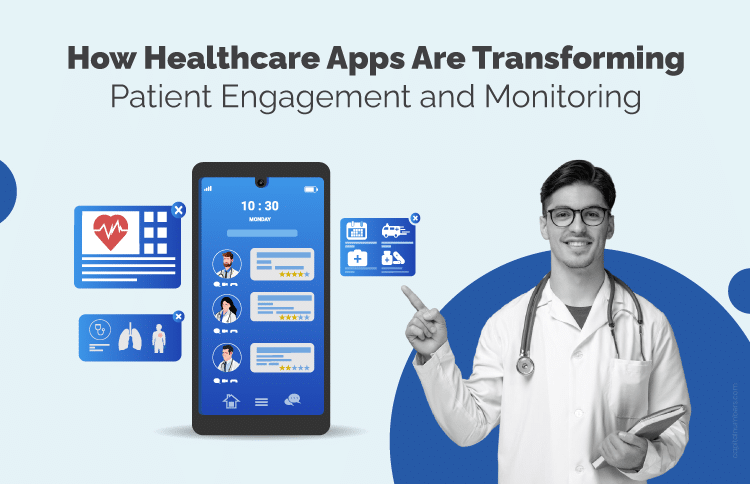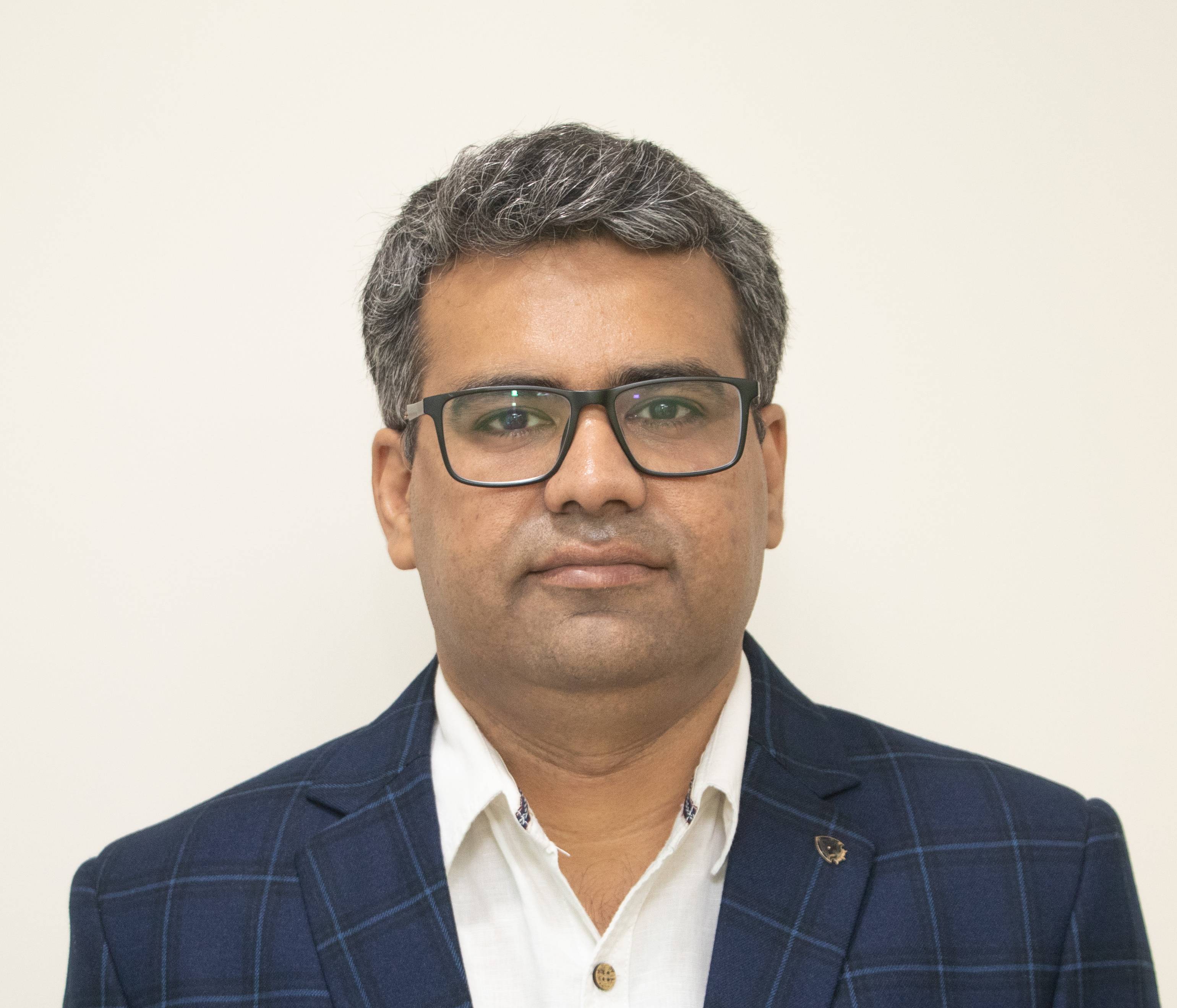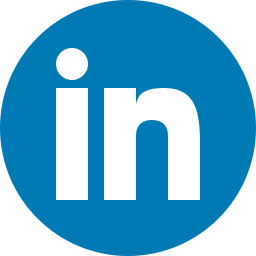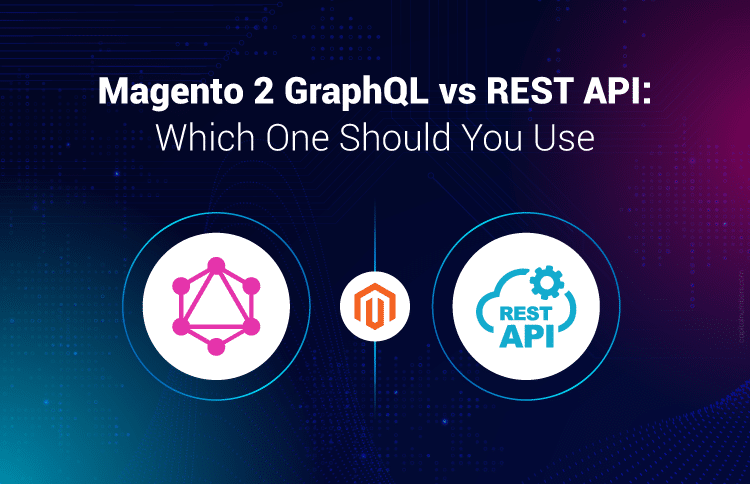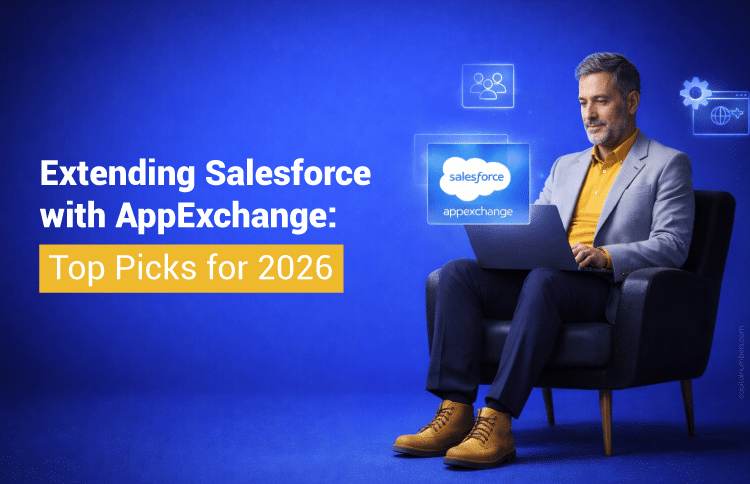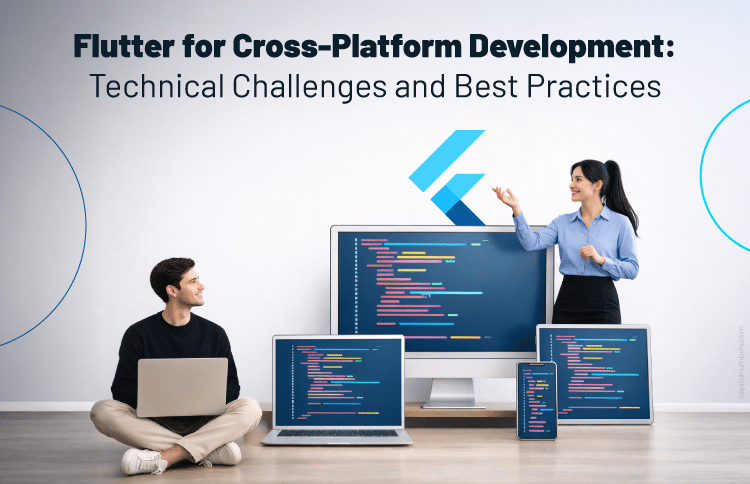How Healthcare Apps Are Transforming Patient Engagement and Monitoring
Table of Contents
Healthcare is no longer confined to hospital walls. With the rise of digital healthcare innovations, patients now expect quick access, personalized care, and continuous support – all from the palm of their hand. In a world where smartphones are as essential as stethoscopes, healthcare apps are redefining how people connect with their well-being.
This shift is also reflected in the numbers. According to a recent study, the global digital health market is projected to expand from USD 427.24 billion in 2025 to USD 1,500.69 billion by 2032, growing at a CAGR of 19.66%. Such rapid growth shows that digital healthcare is not just a passing phase but a long-term transformation.
At the heart of this change are healthcare apps. They make it easier for patients to stay engaged, allow providers to monitor health more effectively, and support a smarter, more efficient way of delivering care. In this blog, we’ll explore how these apps are transforming engagement and monitoring – helping people take control of their health like never before.
What Are the Key Benefits of Healthcare Apps for Patient Engagement?
Connecting with patients made easy.
With just a few taps on a screen, healthcare apps are turning phones into powerful tools for wellness. This shift is part of a larger digital health transformation that’s changing how patients connect, communicate, and care for themselves.
Enhanced Communication
One of the biggest healthcare technology trends is how apps improve patient-provider interaction.
- Through chat, video calls, and instant appointment reminders, remote healthcare solutions make it easy to stay in touch.
- This real-time connection helps build trust and keeps patients more involved in their care.
- Easy access to medical info means fewer misunderstandings and stronger relationships with healthcare providers.
Personalized Care
Modern healthcare app features go beyond basic tracking.
- Apps now offer custom wellness plans, medication alerts, and lifestyle tips based on your health data.
- With AI in healthcare apps, recommendations are smarter and more relevant to each user.
- This leads to real improvements in patient experience – people feel supported, not just treated.
Improved Patient Empowerment
Health tracking apps and patient monitoring systems are giving users more control than ever.
- Patients can track key metrics, such as blood pressure, glucose levels, or sleep, and use that data to make informed decisions.
- For chronic conditions like diabetes or hypertension, these digital healthcare innovations make self-care easier and more effective.
- With more control and insight, patients feel confident making decisions about their health.
Ready to Transform Your Healthcare Operations?
At Capital Numbers, we offer comprehensive healthcare software development services designed to modernize and scale your healthcare solutions. From building intuitive patient engagement apps to integrating secure data systems, we ensure your platform is scalable, compliant, and future-ready. Schedule a call now, and let’s make it happen!
The Evolution of Remote Patient Monitoring
From hospital beds to home screens – healthcare is going remote.
Remote Patient Monitoring (RPM) is a key part of the ongoing digital health transformation, helping patients stay safe, informed, and supported, no matter where they are.
What is Remote Patient Monitoring (RPM)?
RPM uses technology to collect health data from patients in real time – often from their homes – and sends it to healthcare providers for review.
- It’s especially useful for managing chronic conditions like diabetes, heart disease, and respiratory issues.
- RPM is a major step forward in patient engagement technology, giving people more control over their health while reducing the need for frequent hospital visits.
- This approach makes care more proactive rather than reactive, giving providers the ability to track health trends continuously and step in before issues escalate.
Key Features of RPM in Healthcare Apps
Modern healthcare app development has made RPM more powerful and user-friendly than ever:
- Continuous monitoring of vital signs like heart rate, blood sugar, and oxygen levels helps catch problems early.
- Integration with wearables and sensors allows for seamless, real-time health tracking.
- Automated alerts notify doctors immediately if something looks off, enabling quick action and better outcomes.
These features are increasingly common in many digital healthcare innovations, making RPM a core part of smart healthcare app features.
Impact on Healthcare Outcomes
RPM isn’t just convenient – it’s effective.
- It helps with early detection of health issues, so treatment can start before things get serious.
- Patients stay more engaged and informed, which leads to better self-care and fewer emergencies.
- One major benefit? Reducing hospital readmissions by keeping patients stable and supported at home.
How Healthcare Apps Solve Problems for Providers and Patients?
Behind every screen tap is a solution to a real-world healthcare challenge.
Technology is transforming healthcare, and apps are at the center of this shift. Healthcare apps do more than just connect patients and doctors – they directly address long-standing challenges in the industry. Let’s discuss them below:
For Providers
- Operational Inefficiency
One of the biggest challenges in healthcare is operational inefficiency, with providers often dealing with vast amounts of paperwork. Healthcare apps tackle this by simplifying data collection and management, allowing providers to access patient information instantly. These apps not only streamline administrative tasks but also provide actionable insights in real-time, helping healthcare professionals make more informed decisions quickly. This reduction in paperwork frees up valuable time, enabling healthcare providers to focus more on delivering quality care. Additionally, these apps help optimize staff allocation and resources, ultimately improving workflow efficiency. - Patient Non-compliance
Patient non-compliance is a persistent issue. Many patients fail to follow prescribed treatment plans, leading to complications in their health and prolonged recovery. Healthcare apps address this by integrating patient engagement technology, such as automatic reminders for medications, appointments, and lifestyle adjustments. These features not only increase adherence but also allow providers to track patient progress, enabling timely interventions when needed. By improving adherence to treatment plans, these apps reduce the likelihood of missed treatments and contribute to better recovery outcomes, resulting in fewer hospital readmissions and overall healthcare costs. - Expand Reach
Healthcare apps enable providers to offer remote care, extending the reach of services far beyond traditional clinic settings. Telemedicine-enabled apps allow providers to extend their reach to rural and underserved areas, ensuring that patients who might otherwise struggle to access healthcare can receive care in a timely manner. This flexibility also helps providers tap into new markets, further expanding their patient base and creating more opportunities for growth. Remote healthcare solutions can help increase patient satisfaction by offering immediate access to care, reducing barriers like transportation and wait times. - Stronger Brand Image
Investing in healthcare app development positions organizations as pioneers in the digital healthcare space. This forward-thinking approach strengthens a provider’s reputation and builds patient trust and loyalty. In an increasingly competitive healthcare market, providers who offer advanced digital health solutions set themselves apart from competitors. By integrating innovative technologies, healthcare organizations demonstrate their commitment to delivering quality care, enhancing patient outcomes, and improving accessibility. This not only elevates a provider’s standing in the market but also attracts new patients, partners, and investors, further solidifying their brand presence.
For Patients
- Access to Care
Access to timely and quality healthcare remains a significant challenge, particularly for individuals in remote or underserved areas. Healthcare apps overcome this barrier by offering remote healthcare solutions that provide easy access to doctors through video calls, chat, or virtual consultations. This approach is invaluable for patients managing chronic conditions who need regular check-ins without the need for frequent hospital visits. Remote healthcare also provides a more affordable and convenient option for patients who may have financial or mobility constraints, improving overall patient engagement. - Privacy and Security
Patients are increasingly concerned about the privacy and security of their medical data, especially with the growing use of digital healthcare platforms. Modern healthcare apps tackle this challenge by incorporating strong security measures such as end-to-end encryption, multi-factor authentication, secure APIs, and regular security audits. By adhering to regulations like HIPAA and GDPR, these apps ensure that personal medical data is protected, fostering trust in digital healthcare solutions and encouraging patients to embrace these technologies for their healthcare needs.
How Healthcare Apps Improve Cost-Effectiveness?
Smarter care doesn’t just save lives – it saves money too.
Managing costs has always been a major challenge in healthcare. With the rise of healthcare apps and other digital healthcare innovations, patients and providers now have smarter ways to save money. Here are these:
Reducing Healthcare Costs
- By offering remote healthcare solutions, apps help minimize unnecessary hospital visits and emergency room trips.
- Virtual consultations and health tracking apps allow patients to manage their health from home, reducing strain on hospitals.
- Providers save time with automated data collection, allowing them to care for more patients without compromising quality.
Better Resource Management
- With real-time data from patient monitoring systems, healthcare organizations can make smarter decisions about staffing, equipment, and scheduling.
- These insights lead to better use of resources and fewer wasted efforts – key goals in healthcare technology trends.
- Efficient systems mean lower operational costs and improved care delivery.
Long-Term Cost Savings
- Healthcare app features, such as early warning alerts and personalized wellness plans, support preventive care.
- Catching issues early means fewer complications, shorter treatments, and lower long-term expenses.
- Over time, this proactive approach results in significant savings for patients and healthcare providers.
Traditional vs App-enabled Healthcare: Key Differences at a Glance
There’s a big difference between traditional healthcare and today’s app-enabled approach. Here are the key areas where healthcare apps are changing the game:
| Aspect | Traditional Healthcare | App-enabled Healthcare |
|---|---|---|
| Access to Care | Requires in-person visits, limited by location and hours | 24/7 access via remote healthcare solutions and healthcare apps |
| Data Management | Paper-based records are prone to errors and delays | Real-time digital records through health tracking apps and patient monitoring systems |
| Patient Engagement | Passive role, limited interaction between visits | Active involvement via patient engagement technology and personalized app features |
| Efficiency for Providers | High administrative burden, manual workflows | Streamlined operations with automated data via healthcare app development |
| Treatment Approach | Treatment Approach Reactive care based on symptoms | Proactive care using predictive analytics and AI-driven alerts in healthcare apps |
| Resource Allocation | Based on estimates and manual tracking | Data-driven decisions using insights from digital healthcare innovations |
| Privacy & Security | Physical records with limited protection | Encrypted platforms with HIPAA-compliant and GDPR-compliant systems |
| Scalability & Flexibility | Difficult to expand or adapt quickly | Easily scalable apps built to meet future healthcare technology trends |
| Patient Experience | Often impersonal and fragmented | Seamless, personalized care leading to real patient experience improvement |
The Role of AI and Machine Learning in Healthcare Apps
When healthcare meets intelligence, the results are life-changing.
Artificial Intelligence and Machine Learning are no longer just buzzwords; they’re driving real progress in healthcare apps. These technologies are helping doctors make better decisions, offering patients personalized care, and pushing the boundaries of what digital healthcare innovations can do.
Predictive Analytics
With the help of AI in healthcare apps, vast amounts of patient data – like medical history, lifestyle habits, and real-time vitals – can be analyzed to uncover hidden patterns.
- These insights allow healthcare providers to predict potential health issues before symptoms appear, such as identifying early signs of heart disease or diabetes.
- This leads to early intervention, which can prevent complications, reduce hospital visits, and improve long-term outcomes.
- It’s a key component of today’s digital healthcare innovations, where prevention is becoming just as important as treatment.
Automated Recommendations
AI doesn’t just analyze data – it acts on it.
- By combining patient history, current symptoms, and lifestyle inputs, AI can recommend or support treatment plans, but final medical decisions are made by licensed clinicians.
- These smart healthcare app features include wellness tips, medication reminders, and even nutrition advice, all delivered through intuitive interfaces.
- This level of customization enhances patient engagement technology, helping users feel more supported and involved in their care journey.
Improving Decision-Making
For healthcare professionals, AI serves as a powerful decision-support tool.
- It provides data-driven insights that help doctors diagnose conditions more accurately, choose the most effective treatments, and monitor progress in real-time.
- When paired with patient monitoring systems and health tracking apps, AI can flag anomalies like irregular heart rhythms or sudden drops in oxygen levels – allowing for quick action.
- This improves clinical efficiency and contributes to patient experience improvement by making care faster, safer, and more responsive.
You May Also Read: AI in 2025: Reshaping Healthcare, Finance, and Retail
Success Stories: Healthcare Apps That We Have Built
Real results, real impact – here’s how our healthcare apps are making a difference.
We built a number of healthcare apps for our clients. Each app is built by considering the special needs of the client. And the result is obviously happy clients. Here are a few of our success stories for healthcare app development:
1. Building Predictive AI Solutions for Elderly Healthcare
Problem
Caring for seniors means every detail matters. Our client, focused on AI-driven elderly care, was overwhelmed by constant data from wearables and in-home sensors. They needed a smarter, scalable way to detect health issues early and give caregivers clear, timely insights to support seniors better.
Solution
Our expert developers built a platform that processes real-time data from wearables and sensors. Using Python, Pandas, and NumPy, we cleaned and organized the data into model-ready datasets. We applied feature engineering techniques and predictive models to spot early health risks, giving caregivers timely insights to act quickly.
You May Also Read: Predictive AI Solutions for Elderly Healthcare
2. Reinventing Pediatric Dental Care with SaaS Solutions
Problem
Our client wanted to make kids’ dental care fun and easy with a SaaS app. But many clinics were stuck with paper files, scattered data, and no simple way to track habits, visits, or payments. They needed a secure, flexible system that could scale smoothly and simplify dental care for children and families.
Solution
Our expert developers built a SaaS platform using Django, PostgreSQL, Next.js, HTML/CSS, and Stripe. We enabled 360° Oral Health Tracking for clinics and parents, covering cavities, dietary habits, hydration, and routines. With simple forms, error prevention, and GDPR-compliant security, we made children’s dental care engaging, secure, and easy to manage.
You May Also Read: Redefining Children’s Dental Care Through SaaS Innovation
3. Developing a Centralized Platform for Healthcare Operations
Problem
Our client, a fast-growing healthtech company, was struggling with scattered systems and too much manual work. Orders, customer data, and inventory were spread across different tools, slowing everything down. Without a unified platform, teams lacked collaboration and customer insights. They needed one secure, flexible system to bring it all together and support global growth.
Solution
We created a Partner Dashboard that brought everything together in one easy platform. From tracking products and orders in real time to speeding up processing, it made daily operations smoother. Moreover, with this, teams gained a complete customer view, secure role-based access, and flexible branding, helping them work faster, collaborate better, and deliver a seamless experience.
You May Also Read: A Centralized Digital Backbone to Power Healthcare Operations
Bottom Line
Healthcare apps are changing the way care is delivered. They make communication simple, monitoring continuous, and experiences more personal. From real-time tracking to AI-powered insights, these digital healthcare innovations are solving real problems for patients and providers.
The shift is clear. As demand grows, healthcare apps will define the future of care. They cut costs, improve compliance, and keep patients engaged like never before. The future isn’t coming – it’s already here, and it’s app-enabled.
Why Choose Capital Numbers for Healthcare Software Development Services?
Choosing the right partner for healthcare technology can make all the difference. At Capital Numbers, we bring deep expertise, proven delivery, and a people-first approach to every project. Here’s why healthcare providers and innovators trust us:
- End-to-End Capabilities: From health tracking apps to AI in healthcare apps, we cover the entire spectrum of healthcare software development.
- Custom, Scalable Solutions: We design healthcare app features that adapt to future needs and scale as your organization grows.
- Proven Tech Expertise: Our skilled developers work with React.js, Node.js, Python, Django, .NET, and cloud platforms to build modern, robust solutions.
- Strong Focus on Compliance and Security: Our solutions follow HIPAA, GDPR, and industry best practices to ensure data privacy and patient trust.
- Agile Development Process: We use agile methodologies to deliver fast, iterative results, ensuring that your solution evolves with your business needs.
Want to discuss your healthcare app needs? Schedule a consultation today!

